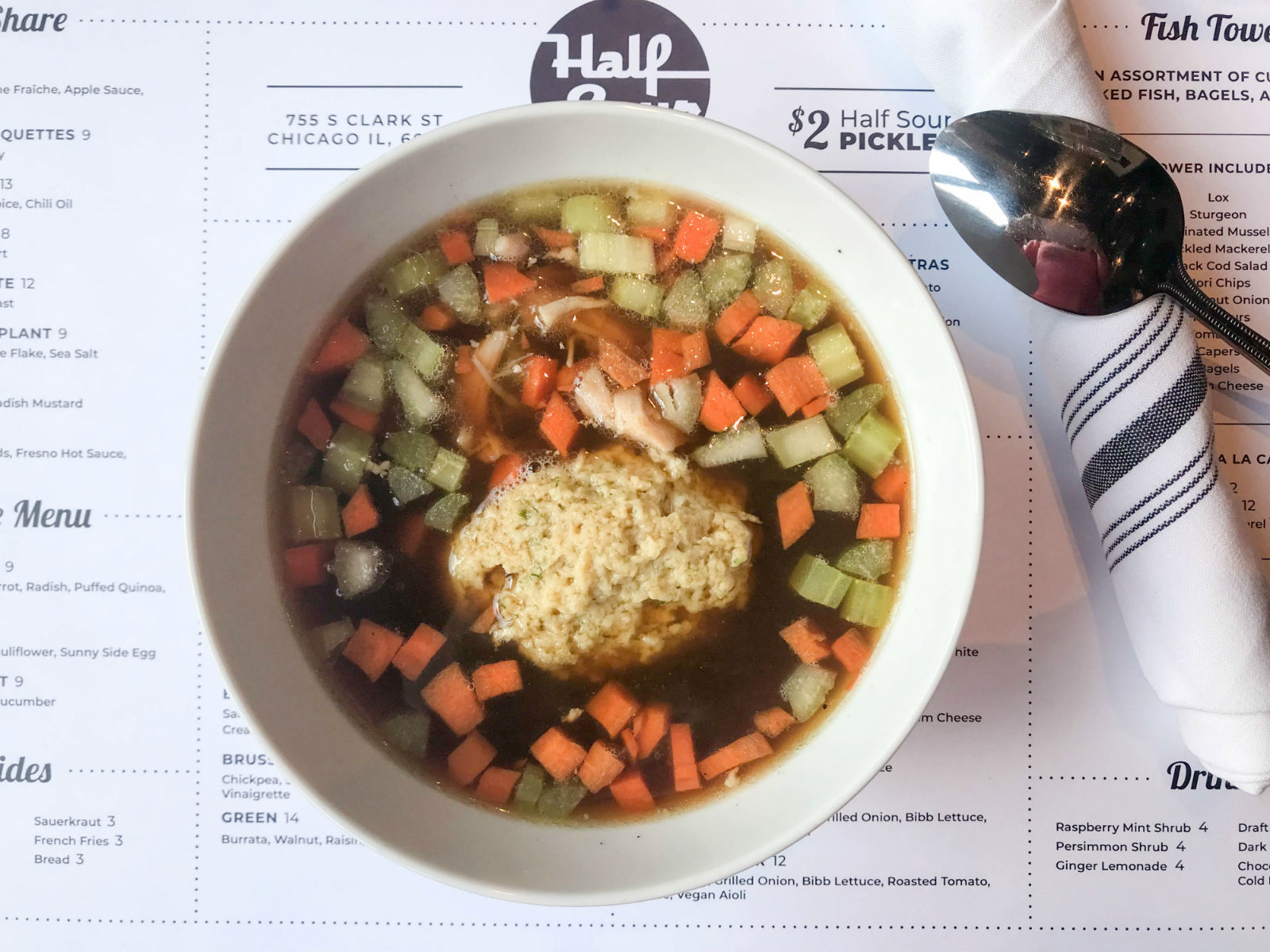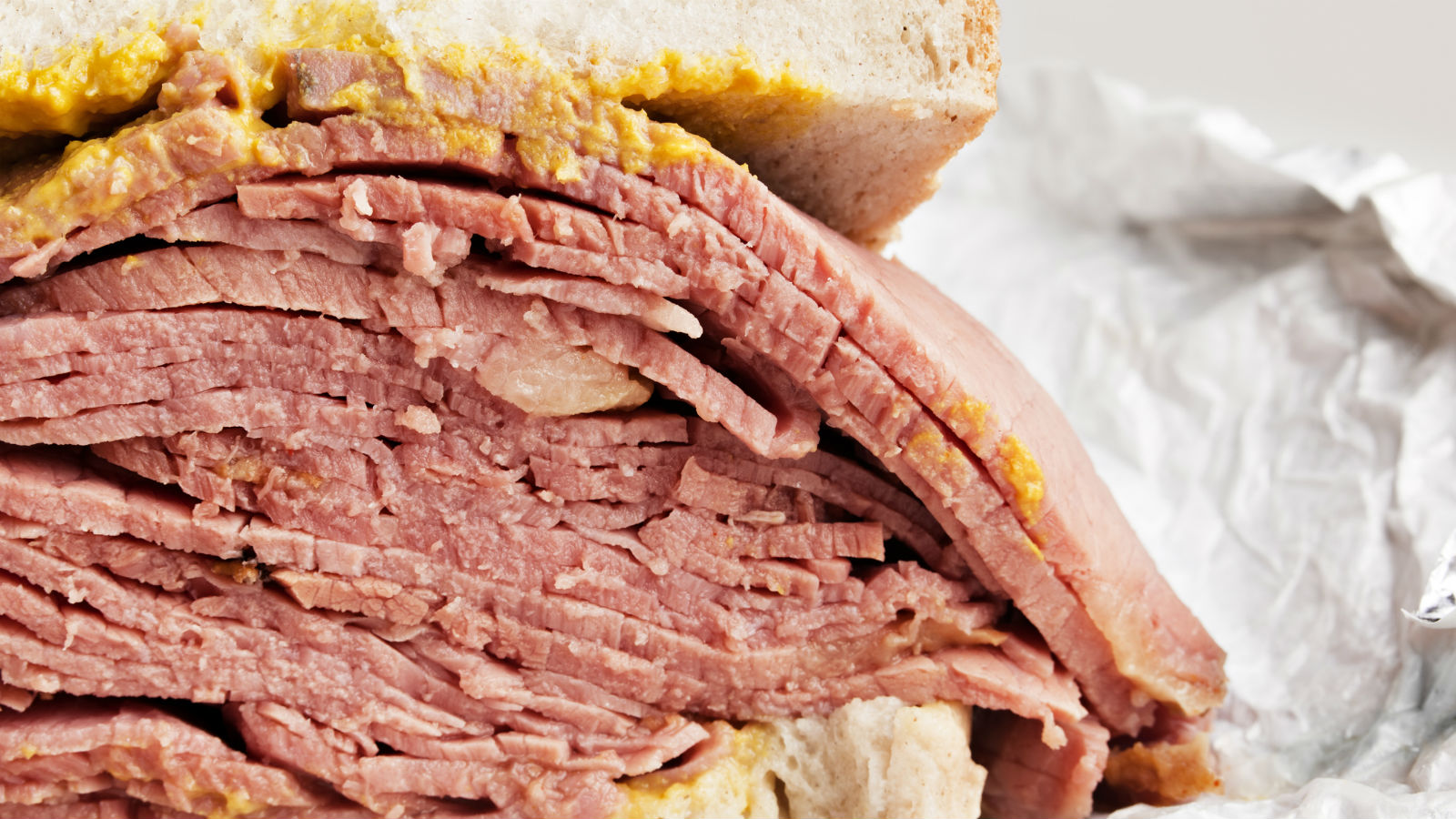In the past decade, artisanal Jewish delis have sprung up all over the United States — from New York’s Mile End Deli and Shelsky’s of Brooklyn to Wise Sons in San Francisco, The General Muir in Atlanta and even Kenny and Zuke’s in Portland, Oregon of all places. Noticeably absent from this list is Chicago, the city that Bon Appetit named the Restaurant City of the Year in 2017. Chicago is unquestionably a great food town; it’s just not a great Jewish food town.
The lack of good deli in the Midwest’s largest city is so glaring that the Chicago Tribune ran a story in November 2017 entitled “What happened to the big Jewish delis in Chicago?” While a few classic, old-school Jewish delis are still churning out overstuffed corned beef sandwiches and matzah ball soup — most notably Manny’s in the South Loop, Kaufman’s in Skokie, and Max and Benny’s in Northbrook — many such institutions have closed their doors. Particularly painful was the 2012 departure of the famed Ashkenaz Deli in Chicago’s Gold Coast, which had been in existence, albeit in different locations, since 1910.
Not only has Chicago lost its traditional neighborhood delis, the city has also, at least until now, been left out of the rise of the artisanal deli: the kind of place that smokes organic meat over hickory wood, fills its babka with 62 percent bittersweet chocolate, and hand-rolls its own bagels while pouring only certified fair-trade coffee. For many Chicagoans, the only consolation for the dearth of great pastrami and rye bread in their hometown was knowing that Zingerman’s, arguably the country’s best deli, was a mere four-hour drive away in Ann Arbor, Michigan.
The Nosher celebrates the traditions and recipes that have brought Jews together for centuries. Donate today to keep The Nosher's stories and recipes accessible to all.
But there is some indication that Chicago’s deli drought may be ending. Last August, Steingold’s of Chicago opened its doors in the North Center neighborhood and quickly drew crowds so ravenous for good deli that the owners had to close the doors early during the first week because they kept running out of food. With pastrami made from Wagyu beef that has been smoked for six hours and rubbed with a secret spice blend, and hand-rolled bagels made by a guy calling himself The Bagel Chef — real name Max Stern — Steingold’s definitely ticked all the artisanal deli boxes.
Like many such places, Steingold’s also incorporates global flavors not traditionally seen in a Jewish deli, but very familiar to its cosmopolitan customers. Consider the coleslaw made with bright red Espelette pepper from the Basque region of France and the Sister-in-Law sandwich that combines the aforementioned pastrami with dill kimchi and spicy Chinese mustard on a baguette. Even the otherwise by-the-book egg cream is made with Topo Chico mineral water instead of seltzer. While some deli purists scoff at these heresies, most of Steingold’s customers, particularly the younger ones, are game to expand their definition of what constitutes deli food, especially when it is this tasty.
In December, Half-Sour, a cafe with a strong deli influence, opened in Chicago’s South Loop, adding to the city’s deli revival. While Half-Sour’s menu contains distinctly un-deli offerings such as avocado toast and a Brussels sprout salad made with (gasp!) bacon, those patrons jonesing for latkes, matzah ball soup and even chopped liver can happily get their fix. One of Half-Sour’s owners grew up in a deli family — Mort’s Deli in Minnesota is named after co-owner Jesse Bloom’s grandfather — so he knows what those patrons looking for deli food, as opposed to simply a sandwich, expect.
Like Steingold’s, Half-Sour smokes its own meat, and the dense, chewy bagels are hand-rolled. Smoked fish lovers will revel in Half-Sour’s luxurious fish tower that pairs classic appetizing fare, such as lox and smoked sturgeon, with the new (nori chips, black cod salad) and the slightly scandalous (marinated mussels). Love celery soda? Then try it in a cocktail! Half-Sour’s drink list includes the Cel-Ray Thyme, a concoction of thyme, simple syrup, CH gin and, yes, Dr Brown’s Cel-Ray soda. If you are not planning to imbibe, Half-Sour also has several non-alcoholic shrubs, and because this is 2018, kombucha on draft.
With any luck, both Steingold’s and Half-Sour will find audiences willing to pay artisanal deli prices — which can range from $15 to $20 for a sandwich and at least $5 for a bagel and schmear — and ruin Chicago’s reputation as a town devoid of deli. They will soon be joined by yet another entry into the category. Norm’s Deli is scheduled to open in the Beacon Street Market, a food hall slated to open later this year in the rapidly gentrifying Uptown neighborhood.
Will an Israeli restaurant takeover be around the corner? I can’t wait to see, and taste.




